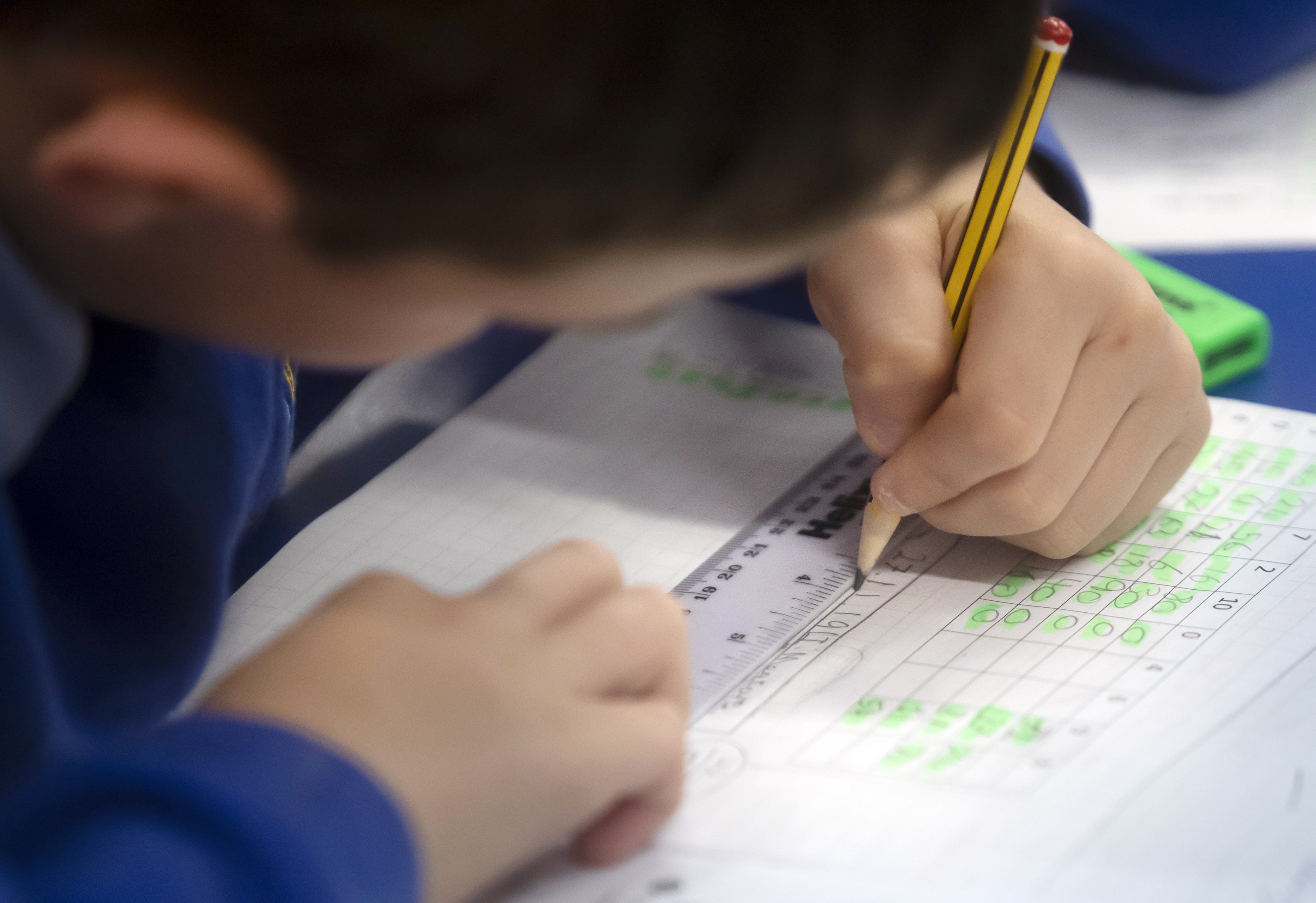The Independent's journalism is supported by our readers. When you purchase through links on our site, we may earn commission.
Could you pass the SATs reading test that left children in ‘tears’?
Extract taken from book with ‘reading age of 13 plus’ in test aimed for 10 to 11-year-olds

Questions from a controversial SATs reading paper that left teachers enraged and pupils “in tears” last week have been revealed.
Hundreds of parents complained online that the reading exam was too difficult and a headteachers’ union said some staff also struggled “to understand the questions”.
The extract was taken from the book, The Rise of Wolves with a reading age of 13 plus, according to LoveReading4Kids and classed as “Young Adult” by Good Reads- despite being given as a test for children aged between 10 and 11 years.

Kerry Forrester, a head teacher at a Cheshire primary school, said: “Tears flowed from our most capable readers and stress levels rose amongst all others, adding that “this was the most challenging reading test I have seen in my 29 years as a teacher”.
The National Association of Head Teachers (NAHT) also expressed concerns over the reading paper and said it planned to raise the issue with exams regulator Ofqual and the Standards and Testing Agency. Following the widespread outrage, schools minister Nick Gibb pledged to look at the exams when papers became available.
Below are questions taken from the extract of this year’s reading paper. Have a go to see if you manage to find the correct answer:
1. Look at Harriet’s answer beginning It’s actually very appropriate...
Find and copy one word that is closest in meaning to “eat”.
Relevant extract: It’s actually very appropriate that you call it a “hotspot”. The gaps underneath the bridge are a perfect place for mother bats to raise their young. Baby bats are born hairless and have only a few months to develop before travelling south in autumn. They need somewhere warm and safe and the gaps under the bridge are just the right width to trap warmth nicely. These bat pups need to spend their energy on growth, not on keeping themselves warm.
Texas in general is a paradise for bats because of all its tasty insects. A mother bat will go out hunting every evening and consume about two-thirds of her body weight in insects every single night to meet her energy need. The feeding frenzy can last all night.
Answer: Consume and feeding both acceptable answers.
2. She wriggled back inside the tent...
What does this tell you about how Priya got inside the tent? Tick one.
- She ran quickly inside.
- She jumped through the flap.
- She had to squeeze in.
- She crept in quietly.
Answer: She had to squeeze in.
However, online thesauruses by Merriam-Webster and Collins list “creep” as a synonym for “wriggle”, among others.
3. Look at the first two paragraphs.
In which American state is the Congress Avenue Bridge found?
Relevant extract: By day the Congress Avenue Bridge in the city of Austin could hardly look more normal: a grey, dreary city-centre road bridge. By night, it plays host to one of the most amazing shows nature has to offer. The underside of the bridge is home to more than a million bats, and every evening in summer they all come swarming out at once, rising up into the city sky like a tornado before spreading out in all directions like plumes of smoke. Standing on the bridge, you might even feel the wind from their wings as they pass by.
Austin is the capital city of the state of Texas in the USA, but it is also the bat capital of North America. The bats under the bridge attract thousands of visitors every year, and every Augus lovers celebrate Bat Fest on the bridge in their honour.
Answer: Texas. Austin would not be accepted because it is a city, not a state.
4. Why did Priya find it surprising to hear two vehicles drive by?
Relevant extract: “Priya was surprised, and now she was completely awake. They had only seen a couple of cars all day, and now two had come past together.”
Answer: “Because they hadn’t heard that many cars drive by.”
Mark scheme note: Do not accept reference only to it being late at night/very early in the morning, eg because it was the middle of the night.
5. What two things made it hard for Innis to trust his own senses when he was looking for the wolf? Tick two.
Relevant extract: The howl pierced the darkening sky and made Innis Munro stop dead in his tracks. He pulled his hood down, listened intently. The only sound was his beating heart. That was a wolf, he thought. But it couldn’t have been. There were no wolves on the island of Nin, no wolves in Scotland any more, not for almost 300 years. It was just a trick of the wind. He pressed on but kept his hood down. The afternoon light of early March was fading fast, snow was falling, and he was still a good half-mile from home. Innis walked faster, told himself it was not the howl that made him hurry but the gloomy sky and gathering snow.
- How flat the land was.
- The fading light.
- How tired he felt.
- The weather.
- How fast he was walking.
Answer: The fading light, the weather.

Gillian Hillier, chief executive of the Standards and Testing Agency said this year’s tests were “trialled with thousands of pupils in April 2022” and “mapped to the KS2 curriculum and information from the trials and reviews”.
A Department for Education spokesperson said: “Key Stage 2 assessments are an important way of identifying pupils’ strengths and where they may have fallen behind as they head to secondary school.
“The Standards and Testing Agency (STA) independently develop these tests, with questions rigorously trialled with year 6 pupils and reviewed by education and inclusion experts to ensure appropriateness. Ofqual regulate all national curriculum assessments, which includes observing STA’s processes.
“The STA will continue to work with schools, children and parents to understand the views on this year’s papers.”
Join our commenting forum
Join thought-provoking conversations, follow other Independent readers and see their replies
Comments

Bookmark popover
Removed from bookmarks